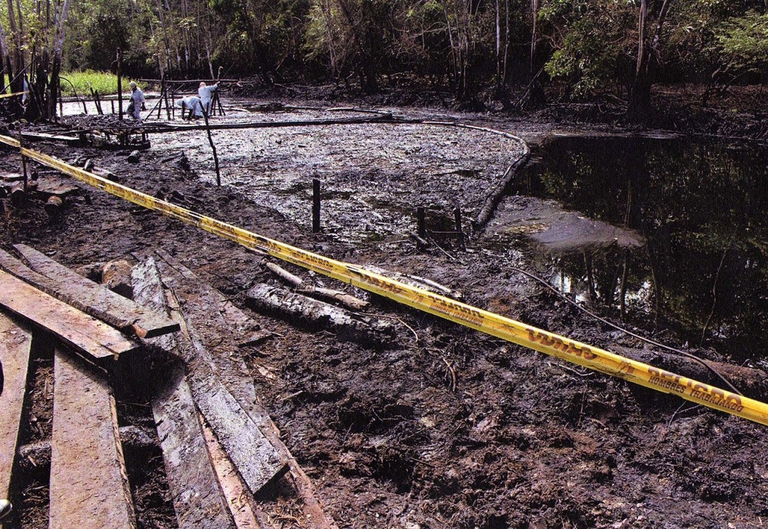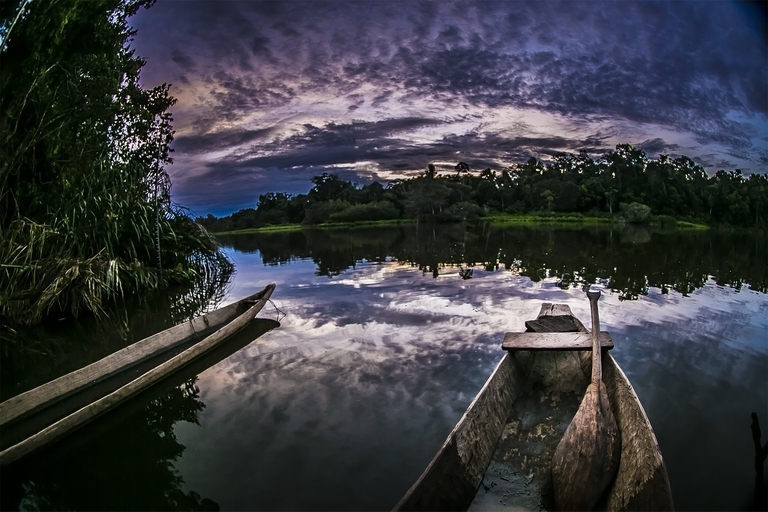
The United States will have to obey restrictions and won’t be able to expand oil exploration in the Arctic and Atlantic Oceans, against President Trump’s will.
Oil spills in the Amazon are nothing new. Another pipeline has broken in the Loreto region of Peru, threatening local communities’ health and the environment.
Oil spills in the Amazon are nothing new. After the latest disaster in February, a new oil spill is bringing Peru to its knees, threatening the very survival of local communities and the extraordinary ecosystem of the Amazon rainforest.
During the night of the 24th of June, oil started to spill from a pipeline owned by Peru’s state-run oil company Petroperu, which carries crude oil from the north of the country through the Andes to the Pacific coast. The accident took place in the Loreto region, in the Peruvian Amazon, which is one of the planet’s richest biodiversity hotspots.
The pipeline was 40 years old and gave place to the third major oil spill since January 2016. The effects of this environmental disaster are still unclear. According to Petroperu, there aren’t severe consequences on the Marañón River, one of the major tributaries of the Amazon River. On the other hand, however, a local indigenous organisation claims that oil has already had a heavy impact on the coastal communities of Bagazán and Angamos and compromised their water supply.
The members of local communities detected the oil spill first, and alerted authorities right away. The workers of Petroperu tried to contain the black tide by using makeshift barriers made of leaves and branches, according to a preliminary report of the Loreto Regional Health Office. “Countermeasures didn’t work properly, as oil continued to spill affecting the lowest areas,” the report reads.
The community of Barranca, which is the closest to the location of the accident, is the most affected. The community counts about 725 people, which are currently lacking basic services including drinking water and electricity. If oil reached the Barranca Caño creek, the main source of water for the community, the situation could get even worse.
Watercourses on which Peruvian communities depend could start posing risks. Those who drank the water of the river are facing poisoning and rain water is the only solution available. In order to face the sanitary emergency, the government and Petroperu are providing drinking water and foodstuffs to the communities. However, nobody knows yet what is going to happen once aids have ended and which are the long-term consequences on the environment and human health.
Siamo anche su WhatsApp. Segui il canale ufficiale LifeGate per restare aggiornata, aggiornato sulle ultime notizie e sulle nostre attività.
![]()
Quest'opera è distribuita con Licenza Creative Commons Attribuzione - Non commerciale - Non opere derivate 4.0 Internazionale.
The United States will have to obey restrictions and won’t be able to expand oil exploration in the Arctic and Atlantic Oceans, against President Trump’s will.
Oil isn’t attractive anymore. The coral reef and the ocean are worth more protecting instead. This is the historic decision made by Belize, small Central American country on the border with Mexico and Guatemala that has banned all future oil explorations within its territorial water in order to protect its great barrier reef. The Belize
These are the top news stories of 2017 and the people who have most left a mark on a year that has been intense yet also rewarding from the point of view of social and environmental sustainability.
After Pantelleria, Italy in 2014, the Republic of Malta in 2015, and Gran Canaria, Spain in 2016, this year the Italian island of Favignana, off the coast of Sicily, will host the fourth edition of the Greening the Islands International Conference on the 3rd and 4th of November. The event marks an important opportunity to tackle the topic of
On 23 October in Paris the mayors of London, Paris, Los Angeles, Copenhagen, Barcelona, Quito, Vancouver, Mexico City, Milan, Seattle, Auckland, and Cape Town committed to a series of ambitious targets to make their cities greener, healthier and more prosperous. By signing the C40 Fossil-Fuel-Free Streets Declaration, the pioneering city leaders pledged to procure only
The Canadian oil company Pacific E&P, who had been granted the right to explore and extract oil in the Peruvian Amazon by the national government, has halted its exploration activities in block 135 of the rainforest (which is divided into “blocks” of oil and gas exploration). The company released a statement saying it “has made the decision to relinquish its exploration
By Anne Hidalgo, Mayor of Paris Clover Moore, Lord Mayor of Sydney Yuriko Koike, Governor of Tokyo Patricia de Lille, Mayor of Cape Town The next four years will be crucial in determining if the world can avoid the worst impacts of climate change, keeping the global temperature rise to below 1.5 degrees. As the
People living near major roads and busy traffic are more at risk of developing dementia, according to a report analysing more than 6 million people.
Some of the most significant news stories of the year. From the Paris Agreement to the Colombian peace deal, here’s our 2016 in review: the last 12 months seen through the lens of sustainability.









